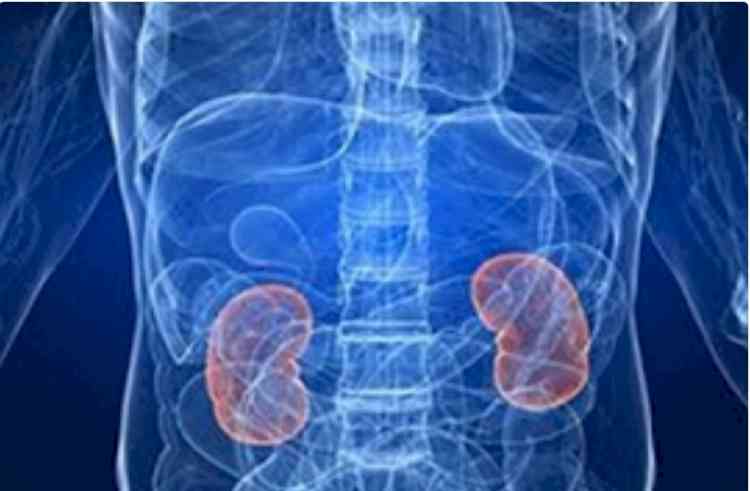Kidney damage is silent killer in Covid patients, say USA's top docs

By Sushant Maji
New Delhi, Sep 2: Fresh research in the USA shows that there is a significant decline in kidney function among patients described as COVID-19 "long-haulers" because they suffer a range of adverse conditions months after their initial infections.
The study published online Sept. 1 in the Journal of the American Society of Nephrology points out that the kidney problem surfaces even among those who had mild infections of coronavirus.
The study carried out by researchers at Washington University School of Medicine in St. Louis and the Veterans Affairs St. Louis Health Care System, shows that those infected with SARS-CoV-2 are at an increased likelihood of developing kidney damage as well as chronic and end-stage kidney diseases.
Known as the silent killer, kidney dysfunction and disease tend to be free of pain and other symptoms as a result of which 90% of people with ailing kidneys don't even know it, according to an estimate of the US National Kidney Foundation.
Also read: Top doc explains how to take care of kids in Covid times
Our findings emphasize the critical importance of paying attention to kidney function and disease in caring for patients who have had COVID-19," says senior author Ziyad Al-Aly, an assistant professor of medicine at Washington University.
The risk of decreased kidney function is highest among people who were in the ICU but the risk extends to all patients including those who had milder cases of COVID-19.
The advantage of detection of kidney disease at an early stage is that it can be treated with medication.
The authors are of the view that it is essential to discover kidney dysfunction before the problem progresses and becomes harder to treat. But kidney problems are silent problems that won't be found until the blood is tested.
"Based on our research, we believe that 510,000 of those people who have had COVID-19 in the US may have kidney injury or disease," Al-Aly said in his comments on the study.
According to the study, compared with patients who did not become infected, people who contracted the virus but did not need to be hospitalized for it had a 15% higher risk of suffering from a major adverse kidney event such as chronic kidney disease, a 30% higher risk of developing acute kidney injury, and a more than twofold higher risk of acquiring end-stage kidney disease.
The latter occurs when the kidneys can no longer effectively remove waste from the body. In such cases, dialysis or a kidney transplant is needed to keep patients alive.
The risk increased for patients hospitalized for COVID-19, and considerably so for those who were in the ICU for the virus: seven times the risk of experiencing a major adverse kidney event, eight times the risk of acute kidney injury and 13 times the risk of end-stage kidney disease.
(The content is being carried under an arrangement with indianarrative.com)


 IANS
IANS 








